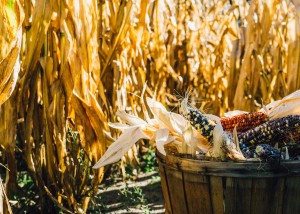
But today, as I prepare to enjoy my second Thanksgiving sans booze, I can honestly say that the genuine gratitude I feel for my family and close friends is a better experience than any artificial buzz I’ve ever derived from alcohol.
Last year, I could not have truthfully written that sentence. I had quit some months before, and I was grateful to be sober because I wanted to keep my commitment to myself and others who cared about me. But a little voice in the back of my mind disagreed. “It’s unfair that other people, untarnished by this ridiculous brain disease, get to live life fully and imbibe as much as they want.” In early recovery, staying sober feels rooted in the denial of pleasure; the discipline required to stay sober feels like constant self-flagellation.
That intrusive, petulant little voice died sometime in the last year, although I don’t know the exact date. I don’t care to pinpoint the time of its demise, because it doesn’t deserve an obituary.
Just as the natural rush of working out and transforming my body filled the pleasure void left by my alcohol addiction, a serene gratitude now inhabits the part of my brain that used to constantly reminisce about drinking. I’m grateful for having experienced the lonely horrors of addiction, because the incredible contrast between then and now has taught me that nothing is more precious than quality time spent with the people I care most about.
Dedication to fitness has made my recovery much stronger, but I know that I would not be sober today if I didn’t have strong, compassionate and authentic people supporting me the entire way. You don’t need to be a brain scientist to know that strong interpersonal relationships in recovery rewire the reward centers in our brains. How many times has an urge to drink been obliterated by a hilarious exchange with my roommate? How many times have I had dinner with my parents and suddenly realized that my old habit of soaking meals in booze numbed my taste buds and ruined my ability to speak clearly?
If I could give myself a year ago some advice, I would simply say: “Hang in there – You know you’re doing the right thing by staying sober, but in a year, you’ll actually feel happy simply because you’re with people you care about. You felt this way in your childhood, and you can feel this way again. Alcohol will be the last thing on your mind.”
I used to think that social gatherings – including holidays like Thanksgiving – were only fun because they gave me an excuse to publicly drink as much as I pleased. In reality, I was horrifying everyone around me, blacking out any memories that might have been made, and feeling even worse than usual the day afterward.
My life is far from perfect, but as I feel the holiday season approaching, I’m grateful that this year my senses are unclouded. Unlike last year, I think there actually might be something magical about this season, and I won’t need a glass of wine in hand to experience it.
Most of all, I’m looking forward to feeling good in the morning and taking in the natural scenery.
Author
-
Chris Scott founded Fit Recovery in 2014 to help people from around the world dominate alcohol dependence and rebuild their lives from scratch. A former investment banker, he recovered from alcohol dependence using cutting-edge methods that integrate nutrition, physiology, and behavioral change. Today, Chris is an Alcohol Recovery Coach with dozens of private clients, the author of a short book called Drinking Sucks!, and the creator of an online course called Total Alcohol Recovery 2.0.
View all posts





